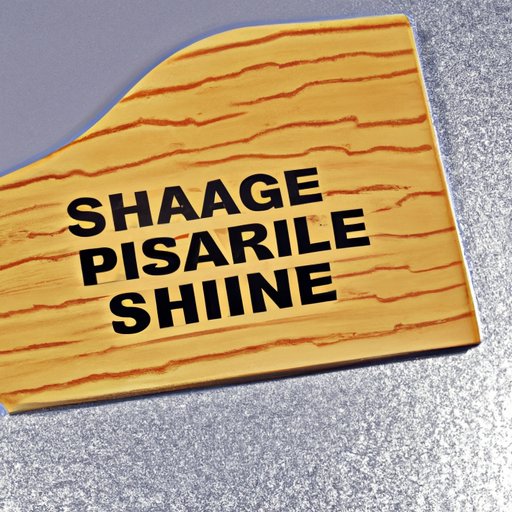Introduction
Shingles is a painful rash that can last for weeks and sometimes months. As we age, our immune system weakens, and the risk of contracting shingles increases. Getting a shingle shot can help prevent shingles, providing peace of mind and reducing the probability of suffering from this painful condition. Medicare coverage for shingle shots is especially crucial for seniors, a group that has a higher risk of getting shingles and may struggle with out-of-pocket expenses.
Understanding Medicare Coverage for Shingle Shots: What You Need to Know
Medicare covers the Shingrix vaccine, which is the two-dose shingle shot recommended by the Centers for Disease Control and Prevention (CDC) for adults aged 50 years and over. The vaccine is covered under Part D, which is Medicare’s prescription drug plan. However, to receive coverage for the shingle shot, individuals must satisfy a few criteria.
The first eligibility requirement for Medicare coverage is to be enrolled in a Medicare Part D plan. Medicare Part A (Hospital Insurance) and Part B (Medical Insurance) do not cover the shingle shot. Medicare Advantage Plans (Part C) often cover the shingle shot, but the specific terms vary by plan, so it’s essential to check with your provider.
Costs for shingle shots under Medicare may vary, and it’s important to understand how coinsurance, deductibles, and copays work. Generally, individuals with Part D coverage should expect an out-of-pocket expense like a copayment or coinsurance amount for each shingle shot received.
Saving Money on Shingle Shots with Medicare Coverage
When individuals have a Part D plan that covers shingle shots, they can lower their out-of-pocket expense for the vaccine. Copays for shingle shots can vary, but most Part D plans have a network of pharmacies where the vaccine is available at a low cost. Comparing plans, looking for those with the lowest copays, and signing up for a plan that covers the vaccine and pharmacies that offer a lower cost vaccine can save seniors money.
It’s important to note that without Medicare, the two-dose vaccine can cost between $280 and $375. This is why understanding how Medicare coverage works for shingle shots can save individuals money on vaccination.
Medicare and Shingle Shots: How to Get the Vaccination You Need
The first step in getting a shingle shot is to talk to your healthcare provider about the vaccine and if it’s an appropriate choice for you. While the vaccine is widely available, it’s essential to have a discussion with a doctor. Additionally, individuals can check their coverage to be sure the vaccine is covered and the cost is low.
Once the decision is made to get vaccinated, seniors can schedule an appointment and receive a shingle shot wherever vaccines are available. Pharmacies, such as CVS and Walgreens, are some of the providers offering vaccines. Seniors can also check resources like Medicare.gov’s Provider Directory to determine where the vaccine is available.
The two-dose vaccine requires individuals to obtain a second shot two to six months after the first shot, so it’s important to follow up and complete the series to maximize immunity.
Navigating Medicare Coverage for Shingle Shots: A Step-by-Step Guide
Medicare open enrollment provides seniors the opportunity to compare coverage and make changes if needed, such as finding a plan with the lowest copays for their specific needs. The following step-by-step guide can help you navigate Medicare coverage for shingle shots:
- Make sure you are enrolled in a Medicare Part D Plan
- Talk with your healthcare provider to ensure vaccination with Shingrix is appropriate.
- Find a pharmacy that offers the vaccine, and be sure it’s in-network
- Check to see if the specific plan covers the vaccine and determine your out-of-pocket cost
- Set up an appointment and receive your shingle shot
- Be sure to get a second dose, two to six months following the first dose
Note that some Medicare Advantage Plans may have different processes, and it’s important to read the plan documents for specific requirements.
Is Your Shingle Shot Covered by Medicare? Here’s What You Need to Check
The first step in determining if the shingle shot is covered by Medicare is to check your specific plan’s details. You can do this in three ways:
- Check the Plan’s annual benefits summary
- Call the number on the back of the insurance card and ask if the vaccine is covered
- Use Medicare’s Physician Finder tool to locate different providers and find out what they charge, including deductibles and copays for the vaccine.
If your plan does not cover the vaccine, check other plans, such as a Medicare supplement plan or another Part D plan.
Maximizing Your Medicare Benefits: How to Get Your Shingle Shot for Free
Under Medicare, preventative services are often free or low cost. The Shingrix vaccine is covered under this preventative category. Medicare Advantage Plans with Part D coverage cover the vaccine, with most vaccines available through pharmacies that accept the plan.
Pharmacies that administer the vaccine under Medicare must offer it at no cost to beneficiaries who belong to Medicare Advantage Plans and meet certain criteria, such as having obtained the first shot through the same pharmacy.
Conclusion
Getting a shingle shot can prevent suffering from shingles, especially in older adults. Understanding Medicare’s coverage and eligibility requirements can help seniors avoid out-of-pocket costs that can add up. Talking to a doctor and researching the different plans that apply is crucial. With the list of resources mentioned above, it is easier than ever for seniors to avoid painful shingles and costly out-of-pocket expenses.
Additional Resources
For more information and resources about Medicare, check out:
- The official Medicare website
- Medicare.
(Note: Is this article not meeting your expectations? Do you have knowledge or insights to share? Unlock new opportunities and expand your reach by joining our authors team. Click Registration to join us and share your expertise with our readers.)
